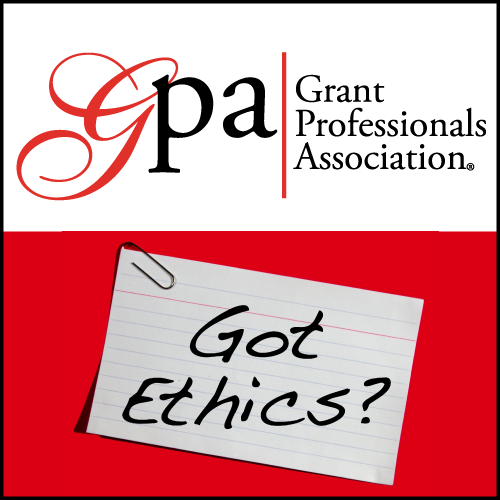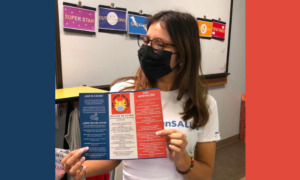
On any given day, there is at least one headline of unethical behavior within both for-profit and non-profit organizations. We know it exists in Hollywood, within religious organizations, youth serving groups, sporting teams, educational institutions at all levels, by government and military leaders, and in almost all professions where the dynamic of a power differential exist. So, how do we, as grant professionals, be sure we are elevating our field so that we are not the next profession on the news?
I’m not talking about something as obvious or heinous as sexual abuse or assault (which should never be acceptable), but what about daily decisions we encounter around costs, procedures, inclusivity, process, conflict, regulations, policies, fraud, data, and every other aspect of grantsmanship?
I could recite to you the Grant Professionals Association (GPA) Code of Ethics, but I am sure you all know it. I could also expand upon the GPA Code of Ethics: Inquiries and Complaint Procedures so you know how and where to ask questions when faced with an ethical dilemma or if you feel a GPA Member or someone with GPA credentials is in violation of that Code of Ethics. However, let us start with something much more basic.
When you are at a client’s or at your office, and someone suggests taking a short cut by plagiarizing material, spending grant funds inappropriately, picking and choosing old or less relevant data instead of using the most recent statistics available, leading a group to a pre-determined conclusion rather than respecting the process of valuing all voices in the room, not meeting goals and justifying it with half-truths, or any like scenario – SPEAK UP. It sounds simple, I know, but the list of consequences could include ruining your reputation, breaking trusting relationships, loosing grant funds, programs being implemented without fidelity, and the agency you represent being put on a high-risk designation list, just to name a few.
In the field, we must be leaders and constantly educate those around us who do not have our breadth of knowledge about the standards in our day-to-day work. While some may not realize the risk management of grants, we must speak up when a member of the team or a colleague proposes a path that is unethical. They will appreciate the knowledge gained and avoiding a potential costly misstep. At the same time, we must continually educate ourselves on the rules and laws of grantsmanship and the trends of funding. We also need to admit when we do not know something and research it until we do. We are the experts people look to for advice – so let us be prepared. Most importantly, we must never compromise our integrity because the profession will be stronger when we all take a stance. Speaking up can be risky, but the consequence of remaining silent is a far greater risk that none of us can take. We have come too far for our profession to be tarnished.
Cyndi MacKenzie, GPC has been working with non-profits for 13-years and is a GPA Approved Trainer with offices in Naples, ME, and Brooksville, FL. Cyndi is an active member of the Ethics Committee. http://www.cyndimackenzie.com
GPCI Competencies: 06. Ethical Practices































